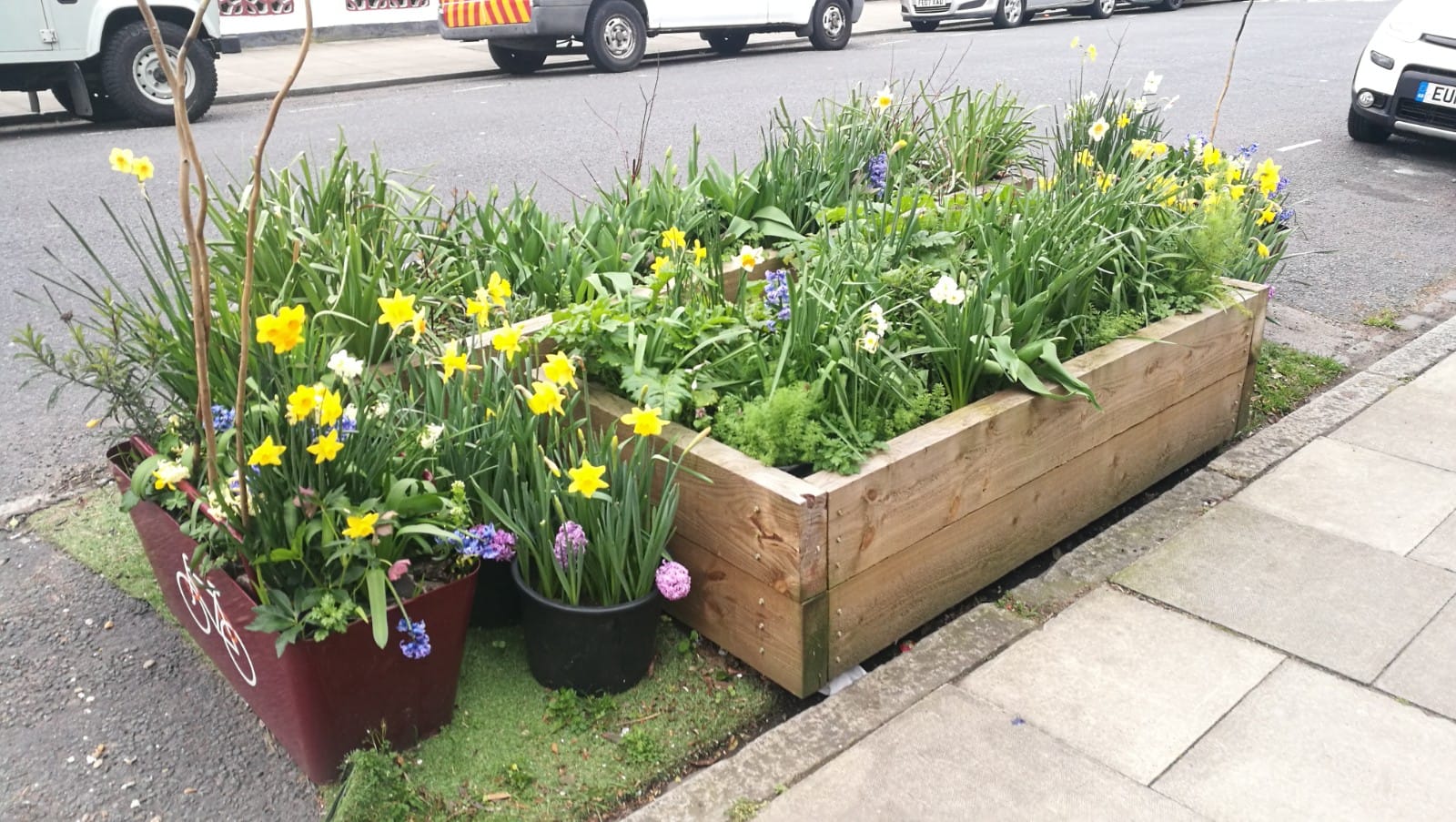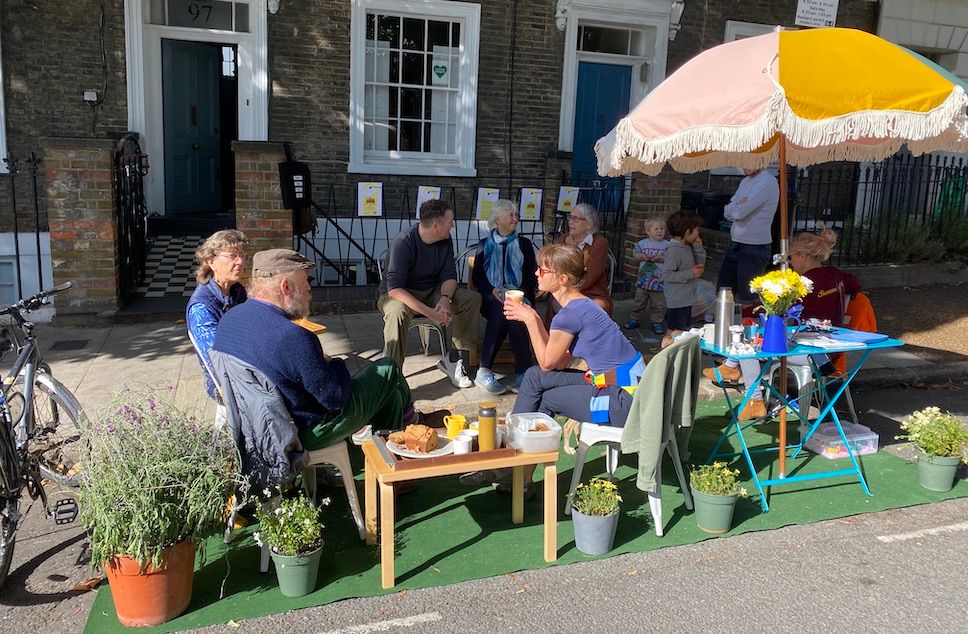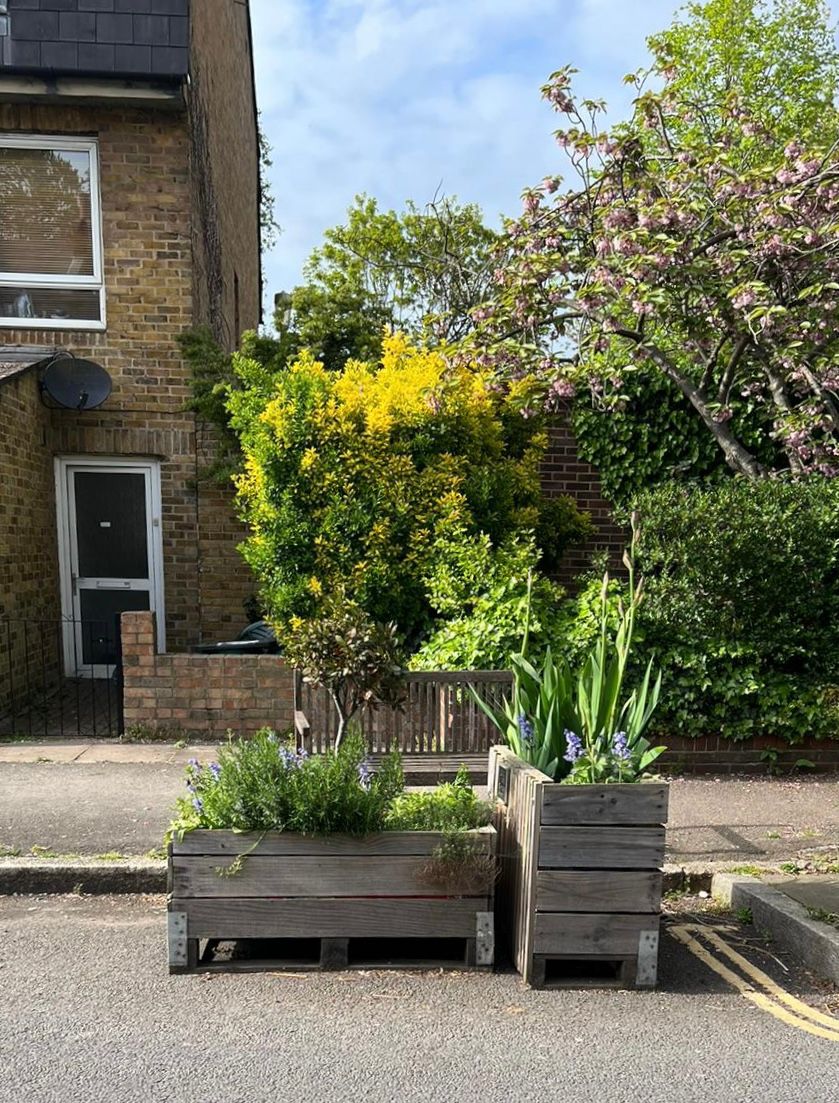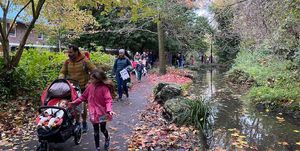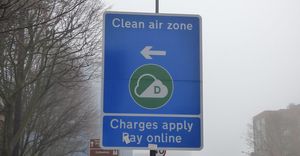As I walk around Islington, it’s wonderful to see trees furnished with luscious green leaves, treepits full, or wildflowers in bloom. But that’s not all: mini-gardens are coming to life along our streets and they are flourishing.
The community are finding creative ways to increase green space in our grey urban landscape. These mini-gardens or ‘parklets’ reclaim street space for the community to sit, meet, grow, and enjoy a beautiful green space.
A parklet allows people or businesses to apply to use a parking bay for communal purposes, with seating and plants. Community parklets have their own unique style which develops as they evolve. The concept is not new: they are common in the US and European cities. But they are growing in popularity here in the UK too. The Parklet Campaign is a national volunteer organisation who want to help people to turn grey space green in their own community.
As part of the Islington Parklet Campaign team, I had the pleasure of setting up a parklet outside a café in Canonbury. Since the introduction of a Liveable Neighbourhood in the area, the café owner has noticed an increase in walking and cycling and they are keen to capitalise on the footfall and the ‘pedestrian pound’.
In 2019 the UN launched the Global Assessment study of biodiversity. It found that over the past 50 years there has been unprecedented species loss and warned that human activities “threaten more species now than ever before”. We often believe that England is a green and pleasant land, but in reality the UK is one of the most nature-depleted countries in the world.
Similarly, Islington is one of the most green-deprived boroughs in London with many residents having little access to green space. It is one of the smallest, most built-up of all London boroughs, with 87% of its total area being developed. It also has the smallest amount of open space per head of population. There is no shortage of interest though, sadly, keen gardeners must wait 13 years for an allotment.
Islington Council declared a climate emergency in 2019 and committed to becoming Net Zero by 2030. As part of their plan to meet these commitments, the Council has committed to a Biodiversity Action Plan, which will ensure that wildlife is protected and enhanced allowing everyone in the borough to have access to a high quality natural environment. Activities include: tree planting, community growing areas and greening our public space. To achieve these goals The Council acknowledges this ongoing work requires collaboration with the community.
Luckily there are many creative people already working towards that goal. They have spotted an outdoor space which until now had been overlooked – our kerbside.
Given Islington’s very low car ownership, under 30% in fact, community trailblazers are re-claiming car parking spaces and giving them back to people and nature. These parklets add much-needed additional space for nature and community to thrive.
Hackney Council approved the first parklet in the UK all the way back in 2018. Its creator, Brenda Puech said: “Public spaces in cities and kerbsides should be for people, not just for storage of private, stationary metal boxes.”
Spending time in nature is vital for our mental health. I love to stumble across a beautifully cared for parklet. There are some wonderful community parklets across London - built by residents not by professional parklet creators. Here in Islington, Mayton Street was the first community parklet inspiring the movement, it even has frogs!
Living Streets have created a handy Parklet toolkit. Why not work together with your neighbours to improve your local area for everyone who lives there and create your own community parklet?
Nature needs our support in many ways. You can help protect it by signing the Zero Hour United for Nature petition, calling on the Prime Minister to set a legally-binding target to reverse nature loss by 2030.
Article featured in The Islington Gazette.
